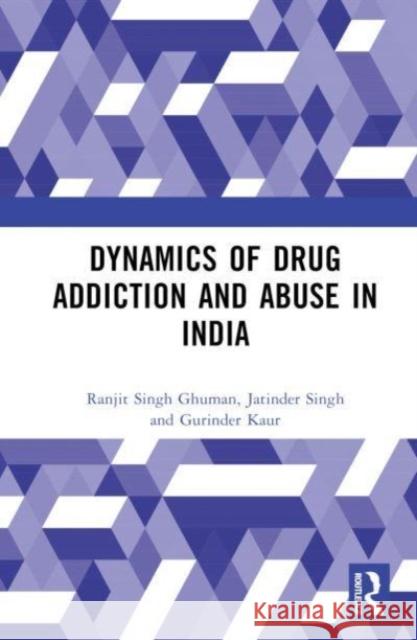Dynamics of Drug Addiction and Abuse in India » książka
Dynamics of Drug Addiction and Abuse in India
ISBN-13: 9781032258416 / Angielski
Dynamics of Drug Addiction and Abuse in India
ISBN-13: 9781032258416 / Angielski
(netto: 723,00 VAT: 5%)
Najniższa cena z 30 dni: 654,86
ok. 22 dni roboczych.
Darmowa dostawa!
This book analyzes drug addiction and abuse from the perspectives of the state and community in India, with a special focus on North-West regions of India. India lies in the transit route of two major global centres of heroin and cocaine processing: the Golden Triangle of Myanmar, Thailand and Laos towards the East; and the Golden Crescent of Afghanistan, Iran and Pakistan to the West making it vulnerable to drug trafficking and curbing this has been a tough challenge for enforcement agencies. The book looks at:the nature and pattern of drug addiction across the age groups, gender and occupational groups, both in rural and urban areas in India; the socio-economic causes of drug-use and addiction and the various socio-economic costs associated with it; the general perception of family members, police and political leaders on drug addiction as well as rehabilitation; and available mechanisms to address the issue at the level of family, society and government and the changes required in policy to curb drug addiction and useThis interdisciplinary book will be of importance to students and researchers of economics, cultural and social anthropology, sociology, police administration, political science, and psychology. It will also be of interest to policy makers, government agencies, social scientists, departments of social and preventive medicine, social workers, civil society, drug-addicts and their families.
This book analyzes drug addiction and abuse from the perspectives of the state and community in India, with a special focus on North-West regions of India. India lies in the transit route of two major global centres of heroin and cocaine processing: the Golden Triangle of Myanmar, Thailand and Laos towards the East; and the Golden Crescent of Afghanistan, Iran and Pakistan to the West making it vulnerable to drug trafficking and curbing this has been a tough challenge for enforcement agencies.
The book looks at:
- the nature and pattern of drug addiction across the age groups, gender and occupational groups, both in rural and urban areas in India;
- the socio-economic causes of drug-use and addiction and the various socio-economic costs associated with it;
- the general perception of family members, police and political leaders on drug addiction as well as rehabilitation; and
- available mechanisms to address the issue at the level of family, society and government and the changes required in policy to curb drug addiction and use
This interdisciplinary book will be of importance to students and researchers of economics, cultural and social anthropology, sociology, police administration, political science, and psychology. It will also be of interest to policy makers, government agencies, social scientists, departments of social and preventive medicine, social workers, civil society, drug-addicts and their families.











